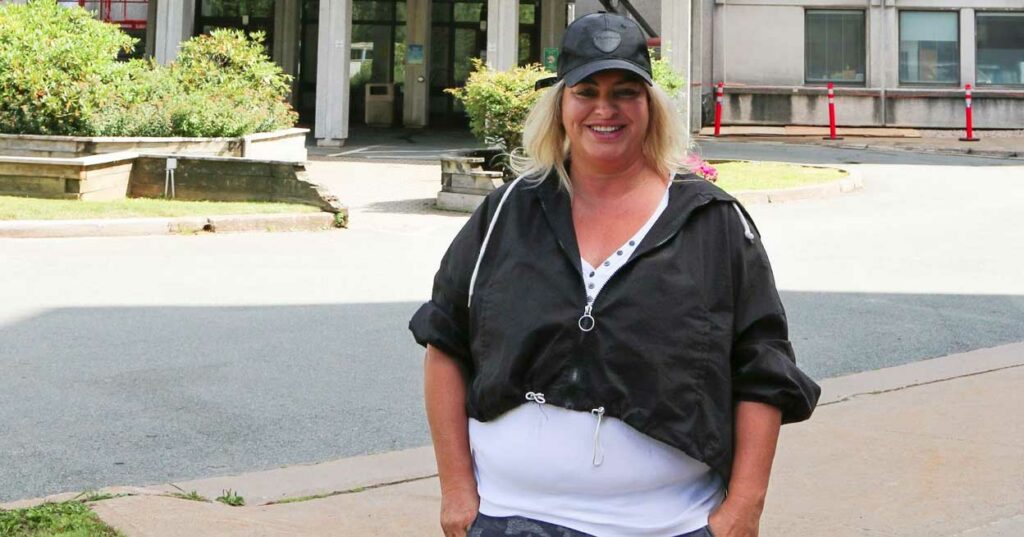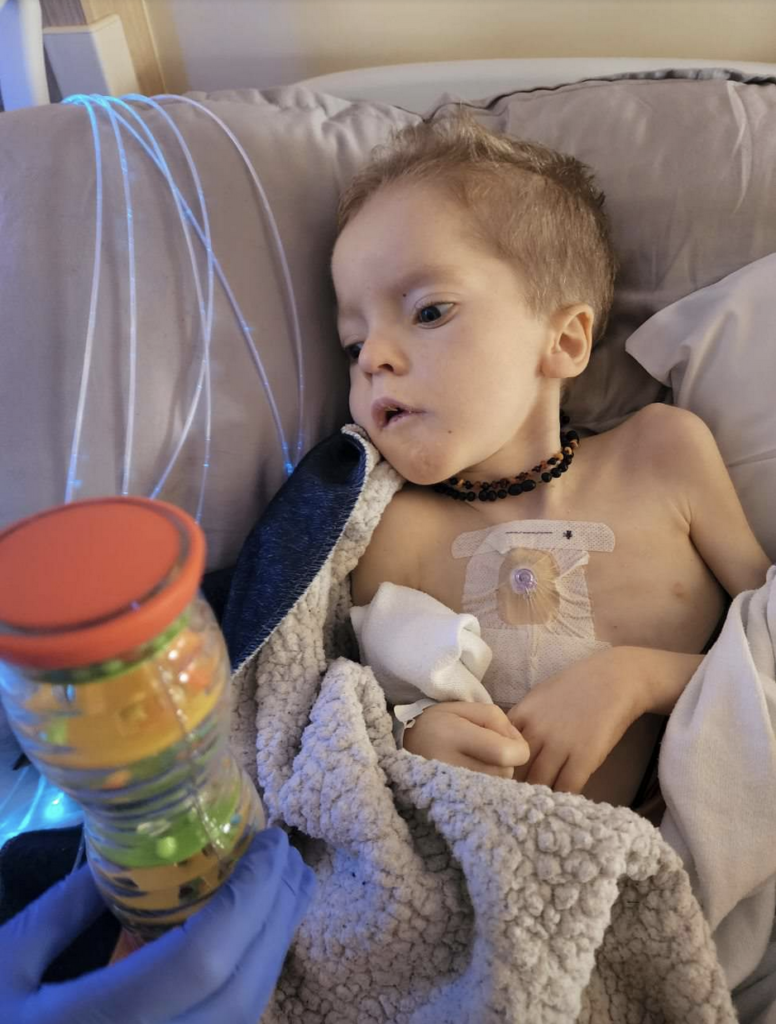
Vigil Held to support a Mother’s right to Choose
At 2pm on August the 18th outside the IWK Health Centre in Halifax, Nova Scotia, a small but supportive crowd of family, friends and concerned parents assembled with messages of love for Samantha Monaghan and her son Luc. The vigil was organised after the IWK denied Samantha the option of giving her own blood to save her son’s life, even though she is a perfect blood match.

Luc has fumarase deficiency, a condition so rare there are only around 100 known cases worldwide, with few affected individuals surviving into adulthood. Luc is 11 years old.

Samantha, who has a background in naturopathic medicine, is cautious about the treatments she provides her son because of the rarity of his condition. She asked for bloodwork to be done for him upon entry into the IWK on August 16th because of a swollen elbow, and later learned that he required a transfusion due to dangerously low haemoglobin levels in his blood.
It was at this time that Samantha asked that her own blood be used for her son, a request that staff at the IWK Health Centre refused to accommodate. Samantha was told that testing her blood would take weeks – time that Luc did not have – even though the IWK Health Centre has the facilities for blood collection on site, and the testing of collected blood is a cooperative effort of labs at different hospitals in the city, allowing for a turn-around time of just a few hours in some cases.
Samantha’s main concern was that the blood provided by the Canadian Blood Services would not indicate if it came from a COVID-19 vaccinated donor or not, and considering the rarity of Luc’s condition, there would be no way to tell if blood from a COVID-19 vaccinated donor would be safe for him.
According to the Canadian Blood Services website, “there is no evidence that transfused blood collected from donors who were previously vaccinated with COVID-19 vaccine poses any harm to patients.” It goes on to state that claims of potential risk from the spike proteins produced by the body in response to COVID-19 vaccines are “not substantiated by the safety studies required for regulatory approval of these vaccines”. Canadian Blood Services does not provide links to those safety studies.
Samantha’s concerns were not assuaged by the staff at the IWK, as she is familiar with the overwhelming reports of adverse events associated with the COVID-19 vaccines themselves, as well as with the “Tainted Blood Disaster” of the 1980s, where more than 30,000 people were exposed to HIV or Hepatitis C through contaminated blood products provided by the predecessor of the Canadian Blood Services. It took approximately 8 years before a public inquiry was established to investigate the tragedy.
Samantha was shocked at the way she was being treated by IWK staff for voicing her concerns and wanting the best for her son, stating that their treatment of her went against her Constitutional rights, and rights as a parent. She signed the consent form for the blood transfusion for Luc under threat of action against her, and when she asked for the consent form to be returned so that she could add “signed under duress” the hospital staff refused. The doctor also refused to sign a waiver accepting responsibility if harm came to Luc as a result of the transfusion.
Samantha said she wasn’t denying blood or treatment to her son, though the hospital staff treated her as if this were the case. “It’s not about not giving my child treatment, it’s about giving my child treatment that’s extremely safe.”
Joining the vigil, other parents shared with her similar stories and experiences where they felt hospital staff had overstepped, infringed upon, or ignored, their constitutional, parental or medical rights. One mother said she no longer feels safe in her own community hospital because of the personal medical choices she has made for herself and her children.
Samantha said she wants her son’s story to be shared with other parents, so they can be made aware of what is happening in Nova Scotia, and stand up for their rights and the rights of their children. She said that is the most significant way people can support her and Luc. She will be serving Notices of Liability to the hospital staff in the hopes that their conduct will change for the better. Samantha has also teamed up with Action4Canada, who have put out a Call to Action encouraging people to contact the IWK, Nova Scotia’s Premier, Tim Houston, and Chief Medical Officer of Health, Robert Strang, to voice their concerns.
– Aldous M. Cluverius







Responses